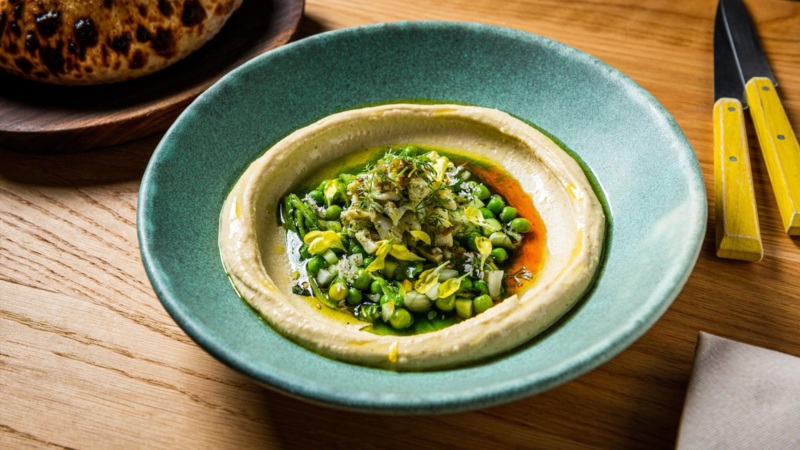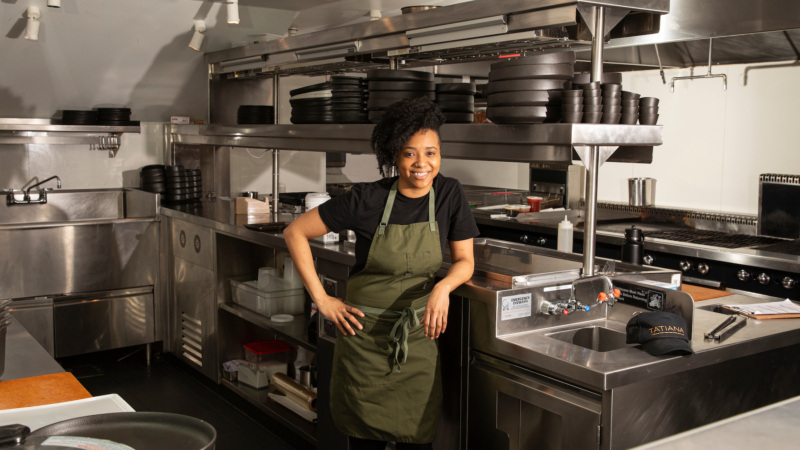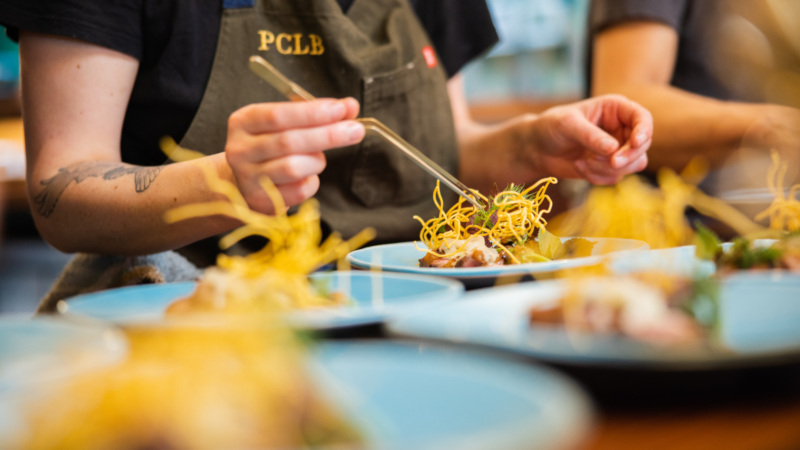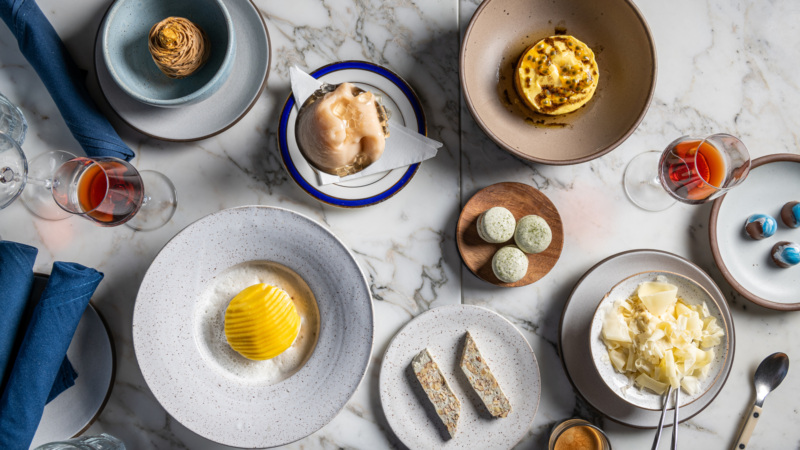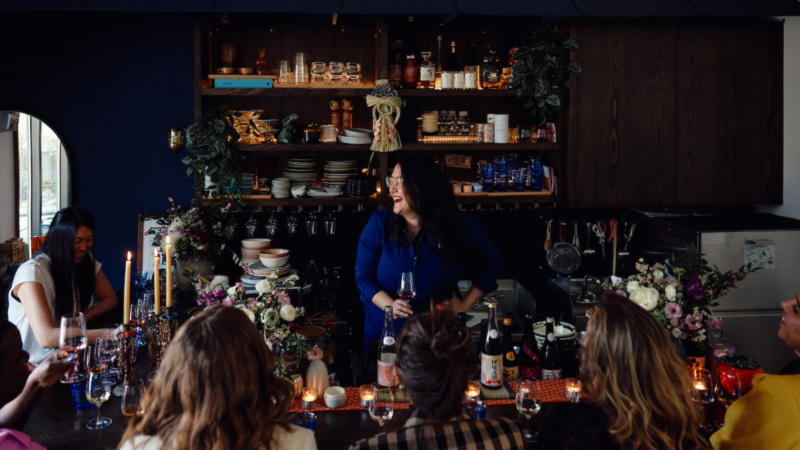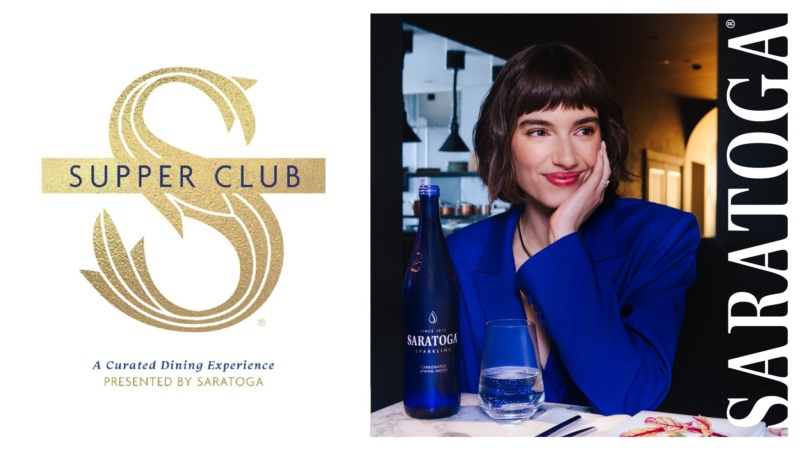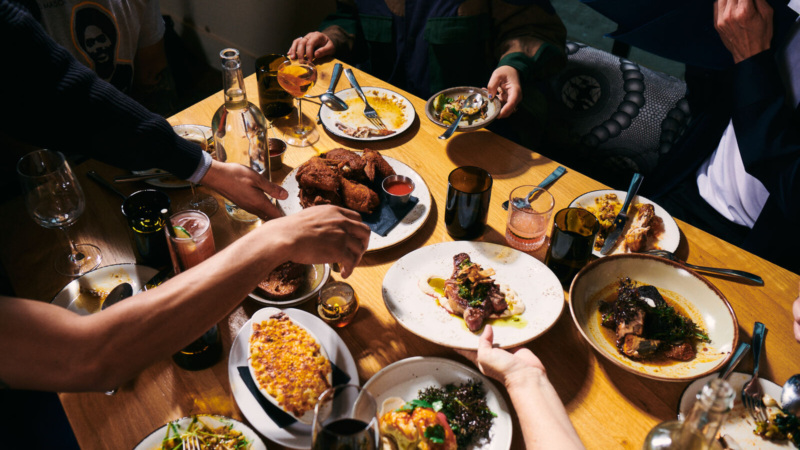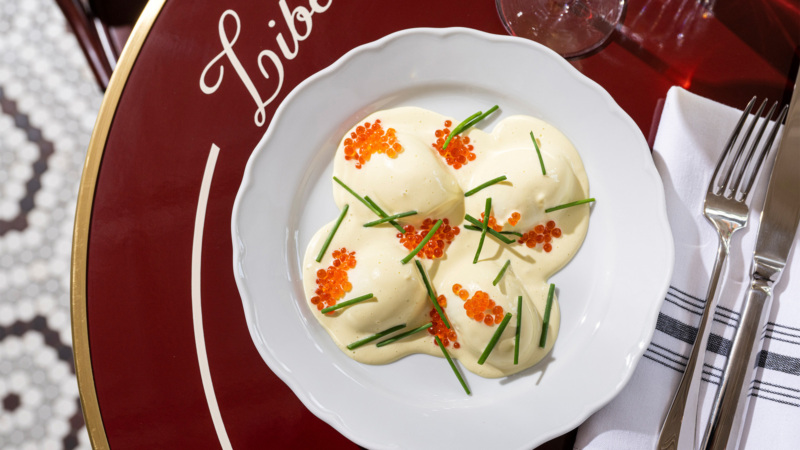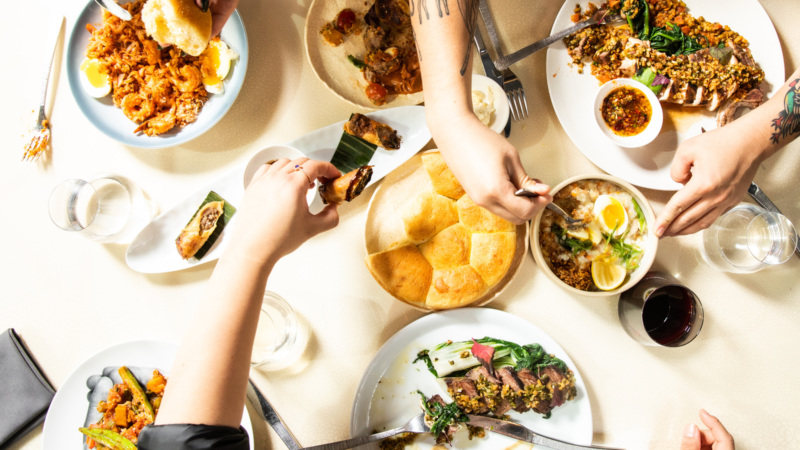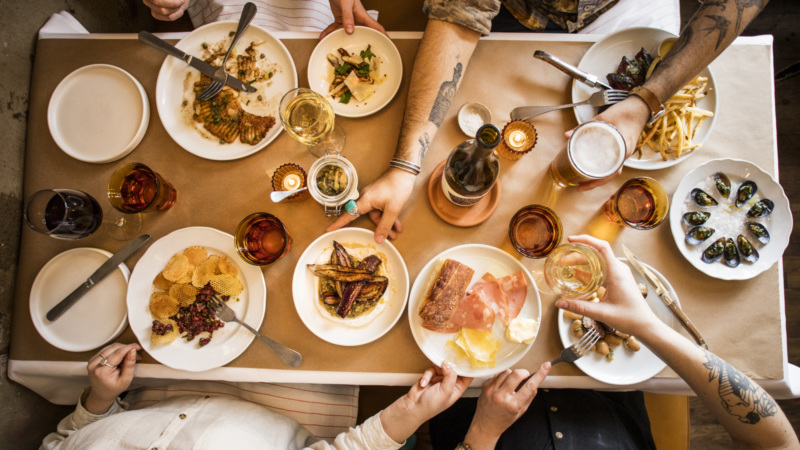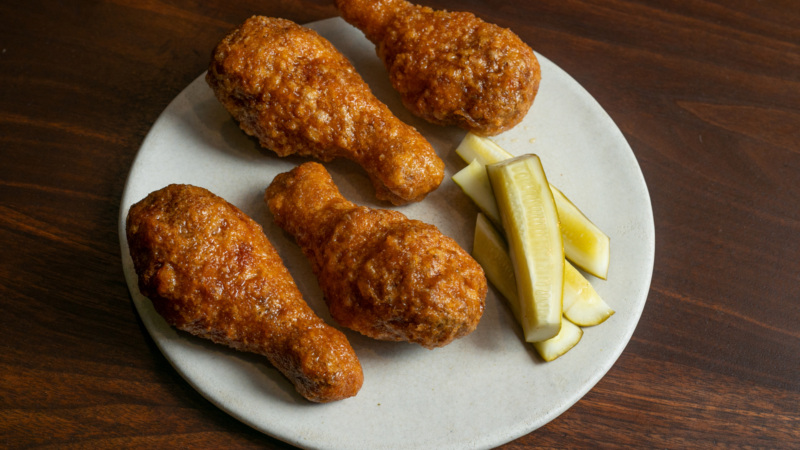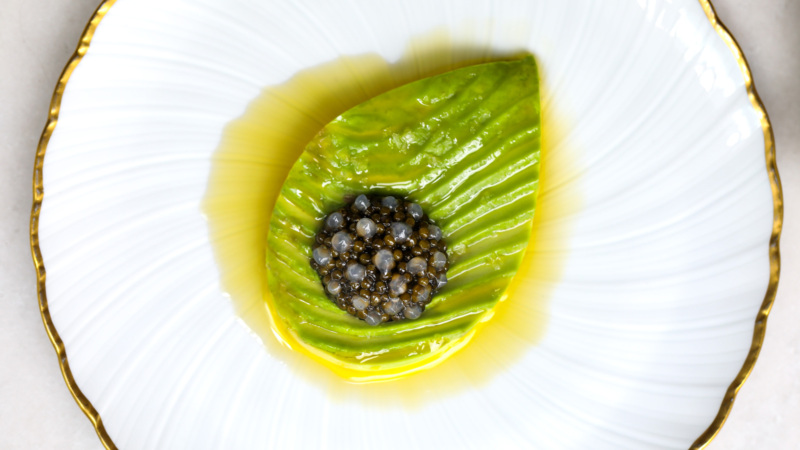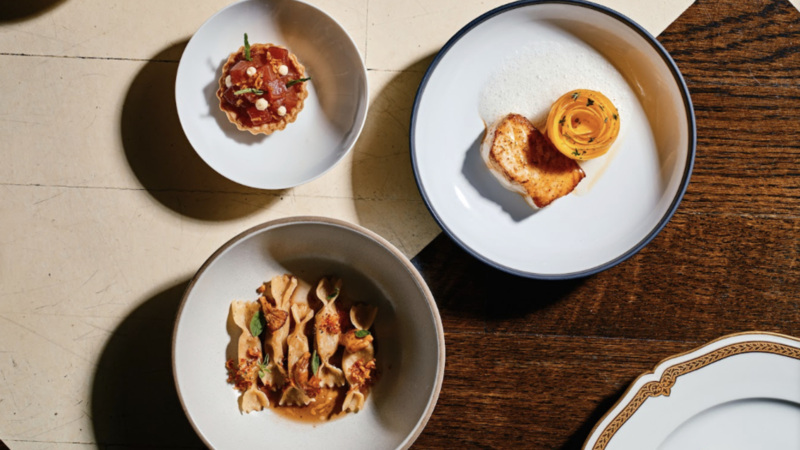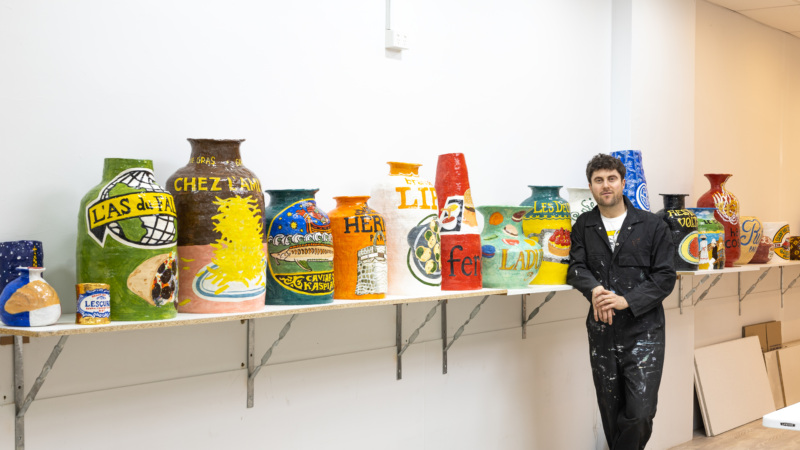
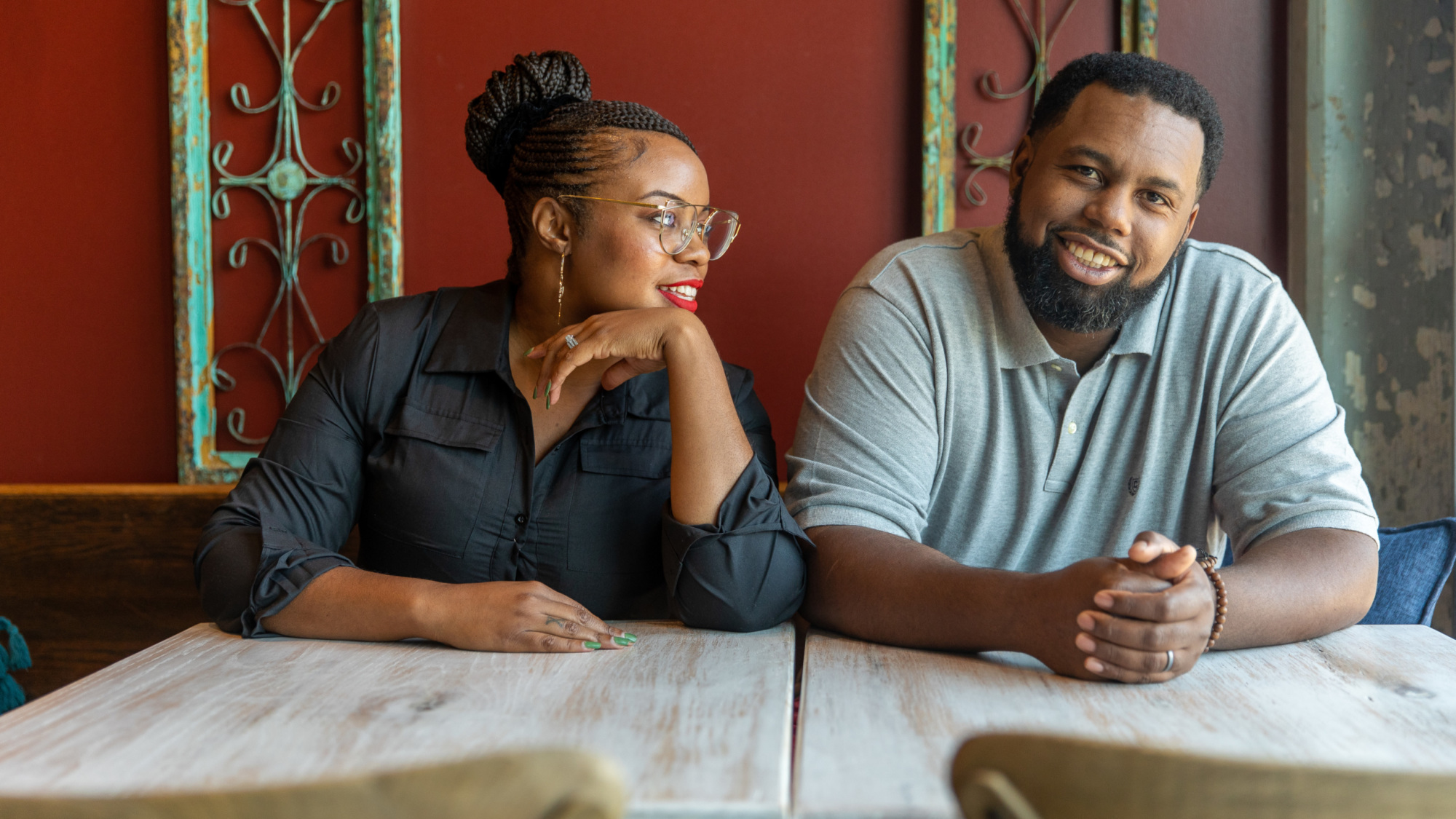
From Charlotte, a Plan to Make Food Festivals More Equitable
Subrina and Greg Collier, owners of the acclaimed Charlotte restaurant Leah & Louise, have a succinct way of explaining what’s wrong with the standard food and wine festival.
“What’s the word we use?” Subrina Collier says of the template that calls for big-name chefs doling out tidbits to tipsy ticket-holders in crowded tents, and wealthy diners anteing up thousands of dollars for meals that lesser-known talents prepare at their own expense. “When there’s a certain caliber?”
Greg Collier nods.
“Elitist.”
Picking up on their work as organizers of pop-up dinner series Soul Food Sessions, the Colliers decided to do more than shine a light on the myriad problems with food festivals. This October, they will host the BayHaven Food & Wine Festival, a three-day event billed as a celebration of Black foodways and the people who make them possible. The theme itself is noteworthy, since Black food and beverage professionals have long been left out of culinary festivals across the South.
“At a lot of festivals, it would be us and a handful of other Black people,” Subrina Collier says, stressing that the ratio is especially poignant because of festivals held in cities where a substantial portion of the population is Black. “We’re in Charleston; we’re in Atlanta, and you see a handful.”
Yet in the process of putting together a corrective event, the Colliers also want to challenge assumptions about festival operations. With the help of friend and fellow North Carolina restaurateur Katie Button, who in 2019 spearheaded Asheville’s first food festival, Subrina Collier is trying to craft a festival model that’s equitable and accessible.

In practice, that means BayHaven isn’t asking chefs to work multiple events, or to provide their own ingredients. It isn’t restricting its participant list to high-end restaurant representatives, or banning children from the festivities, which are slated to include a food truck rally with face painting, carnival games, and a $10 entry fee.
Most importantly, though, BayHaven is putting purpose before profit.
“We’re not trying to make money,” Greg Collier says, distinguishing the event from festivals that have made a local economic boost central to their missions.
▪️
Critics of the festival system say an unwavering focus on revenue is largely to blame for the widespread mistreatment of contributors and disappointment of guests, a scenario that threatened to become the norm in Asheville. Hence the first edition of Chow Chow closely resembled other Southern food festivals, down to a Grand Tasting Tent; papier-mâché produce displays; and pricey wine dinners. Tourism officials loved it. And sticking to the script proved so profitable that Chow Chow was able to donate $50,000 to a local food bank after paying its bills.
But the festival faced backlash from industry members who lamented the high ticket prices, and erasure of local voices.
“It felt like a festival for people who don’t live here,” chef Silver Cousler told Asheville’s alt-weekly.
Button says Chow Chow organizers recognized the problem, and used their pandemic hiatus to dramatically restructure the program.
Chow Chow in 2021 returned as a three-month series of food events, addressing social justice and climate change, with every chef guaranteed an honorarium and stipend to cover food costs. Among the sessions on this summer’s schedule are a farm dinner preceded by pollination lectures; a naturally-dyed napkin-making class and a discussion of human migration accompanied by small plates.
According to Button, it’s been a somewhat harder sell than the original Chow Chow.
“When you step out of what people are used to, there’s a learning curve,” she says. “But we need to share more; we need to dive deeper. It can’t just be about food and cocktails. It has to be what the people attending are passionate about.”
As business owners, the Colliers are keen for their festival to break even. But at their restaurants, they’ve found that prioritizing their passions and caring about their employees facilitates success, an approach they intend to replicate with the dozens of chefs, farmers, artisans, distillers and brewers who’ve signed on to BayHaven.
“Listen, I want you to enjoy yourself and go back home,” Greg Collier told colleagues he invited to cook, pitching them on an after-party planned just for them.
▪️
Several years ago, when Collier was just getting started on the festival circuit, there wasn’t much talk of chefs having a good time. In exchange for the promise of exposure, organizers would ask Collier to work up to seven different events, often at a significant distance from a kitchen or parking lot.
“It wasn’t, ‘Hey, come cook at Husk,’” he recalls. “It was, ‘Come do an event on a pier where people are coming by on a boat.’”
At the time, Collier figured every festival chef was expected to work for free. But once he started collecting prestigious awards and appearing in national magazines, he learned that headliners were being courted with plane tickets, hotel rooms, stipends, and overstuffed gift bags.
“I didn’t even know that was in the realm of possibility,” Collier says. “It was like being in The Matrix. This has been going on the whole time?”
One of Greg Collier’s goals is for BayHaven participants to leave with the knowledge of what could and should be available to them in a festival setting. That kind of community building is emblematic of the fellowship that Subrina Collier hopes to foster. She remains confident that food festivals, despite their contentious recent history, can spark fun and fellowship. She witnessed it as a little girl in Memphis, home to one of the region’s longest-running Greek festivals.
“I wish I saw more of that,” she says, sighing.
To make up for back-to-back COVID cancellations of its customary Mother’s Day event, Memphis’ Annunciation Greek Orthodox Church in October will host its 61st annual festival, albeit in scaled-down fashion. At a typical festival, the church sells 5,000 gyros and 5,400 pieces of baklava, along with shish kebab; Greek pizza; spanakopita; galaktoboureko and macaroons, some of which enthusiastic attendees stash away in their freezers.
Like newfangled food festivals, the Memphis Greek Festival has a charitable component: attendees are admitted for free if they donate three canned goods. It also doesn’t stint on beer and wine: The Commercial Appeal recently named the festival as one of the best places in town to drink.
Still, spokeswoman Kathy Paris Zambelis suspects what people like most about the festival is its welcoming spirit.
“We do embrace everybody,” she says, recounting how church leaders rile up the crowd with repeated “Opa!”’s and urge attendees to try Greek dance steps.
“It’s about food and family and being Greek, but first and foremost, it’s all about our faith,” Zambelis says. “We love that people want to come and learn about it.”
Subrina Collier never forgot it.
BayHaven Food & Wine Festival is scheduled for Oct. 22-24. For more information, visit bayhavenfoodandwine.com.
Hanna Raskin is a Charleston-based food journalist. She recently concluded an award-winning run at The Post and Courier, and will soon launch The Food Section, a newsletter covering food and drink in the American South. Follow her on Twitter and Instagram. Follow Resy, too.

